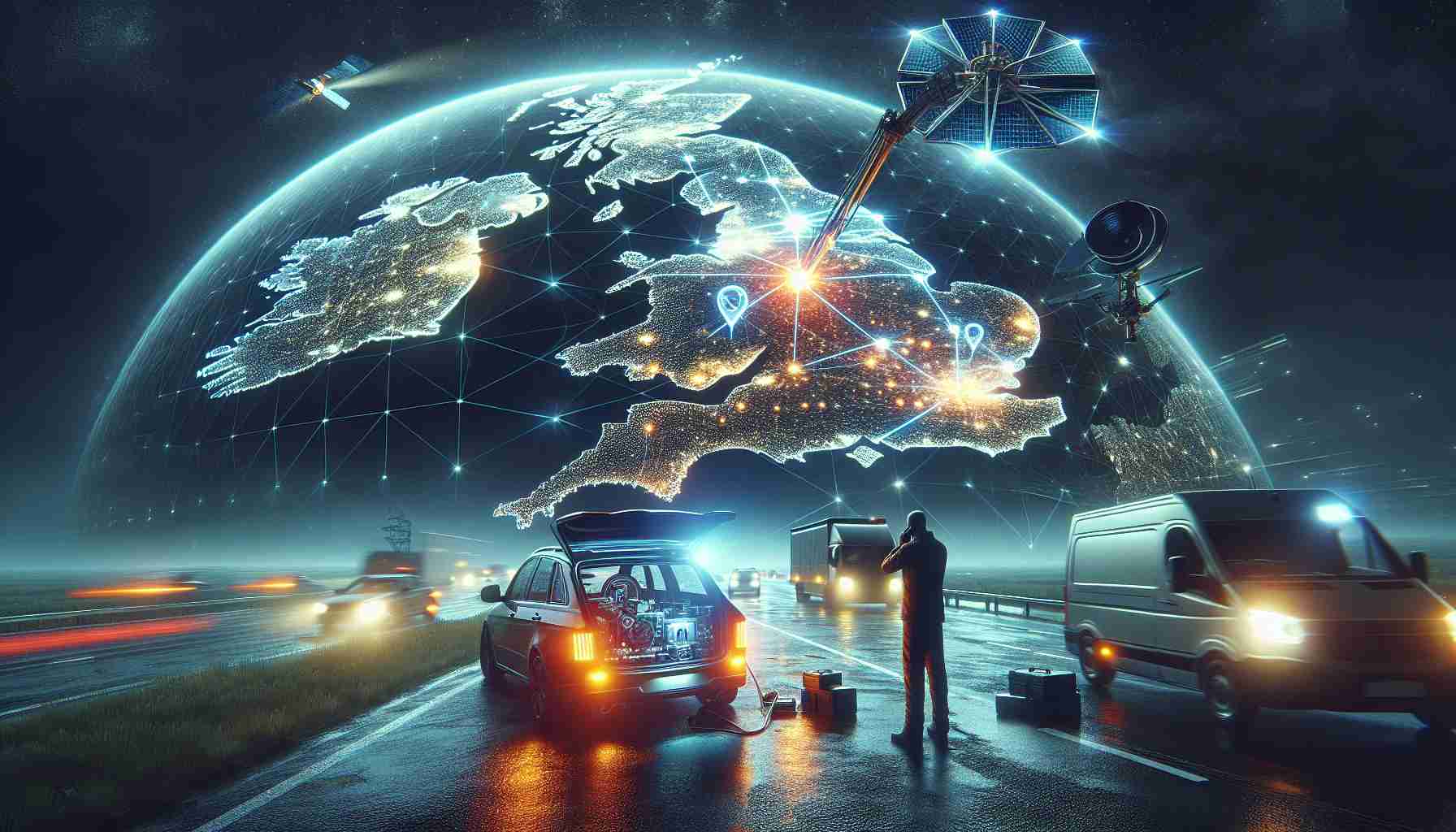
Apple has officially introduced its Roadside Assistance via Satellite feature in the United Kingdom, a significant expansion from its initial launch in the United States. This innovative service allows iPhone users to reach out for help in areas where cellular service is unavailable, providing a vital safety net for drivers facing vehicle troubles in remote locations.
To utilize this feature, users must own an iPhone 14 or a later model and be situated in an area lacking both Wi-Fi and mobile coverage. Accessing the service is straightforward; it can be found in the Mobile Data section of the Control Center or within the settings menu under Satellite. Upon activation, users will receive clear instructions for connecting to a satellite, followed by a brief questionnaire to identify their specific issue—be it a dead battery or a lockout from the vehicle.
In the UK, the service is partnered with Green Flag, offering users the first two years of assistance free of charge after activating their iPhones. However, additional fees may apply for services rendered by Green Flag. This expansion into the UK marks a meaningful step for Apple, aiming to enhance driver safety and peace of mind while on the road.
Apple Unveils Satellite-Based Roadside Assistance for UK Drivers: A New Era of Safety
Apple has recently expanded its Roadside Assistance via Satellite feature to the United Kingdom, enhancing safety options for iPhone users in remote or hard-to-reach locations. Following its successful roll-out in the United States, this new feature promises to provide essential support for drivers who find themselves stranded without cellular or Wi-Fi service.
How Does Satellite-Based Roadside Assistance Work?
To access the Roadside Assistance service, users must be equipped with an iPhone 14 or later model. The service operates by allowing users to connect to satellites that are part of Apple’s advanced satellite network, designed to facilitate communication in regions where traditional mobile networks fail. Following the identification of a problem via a short questionnaire, satellite communication sends the request for help to a support center, where operators can assist in dispatching aid.
Key Questions About the Service
1. What areas are covered by this service?
– The service is designed for areas lacking cellular and Wi-Fi coverage, making it particularly useful for remote rural areas across the UK, where drivers often encounter vehicle issues far from help.
2. What are the costs associated after the initial free period?
– After the first two years of free service, users will need to consider the pricing plans offered by Green Flag. Each situation may incur different fees depending on the type of roadside assistance needed.
3. How reliable is the satellite connection?
– Apple has stated that their satellite technology provides a reliable connection as long as users maintain a clear line of sight to the sky, which is necessary for effective satellite communication.
Advantages of the New Feature
– Enhanced Safety: This service provides an essential safety net for drivers in isolated areas, offering reassurance that help is always within reach, even without cell service.
– User-Friendly Interface: Apple’s intuitive interface simplifies the process of getting help, making it accessible even for those who may not be technologically savvy.
– Free Two-Year Trial: Users can explore the benefits of this service at no initial cost, allowing them to assess its value without obligation.
Challenges and Controversies
– Dependence on Technology: Critics may argue that reliance on satellite technology could become a problem during severe weather conditions, which might obstruct satellite signals.
– Future Costs: Users need to be aware of the potential costs involved after the complimentary period, which might deter some from fully embracing the service.
– Coverage Limitations: While satellite assistance is beneficial, it doesn’t replace the need for robust cellular networks, which may lead to concerns about its practicality in various situations.
Disadvantages of the New Feature
– Limited Technical Reach: The service may have limitations in extremely rural or densely wooded areas where satellite signals can be obstructed.
– Potential for Delay: In extreme emergencies where time is of the essence, there may be a delay in response time compared to traditional roadside assistance, which often has faster local response.
As Apple continues to innovate in safety technologies, the introduction of satellite-based roadside assistance is a notable step in enhancing convenience and security for users across the UK. For more information about this feature and other Apple services, visit the official Apple website at apple.com.



